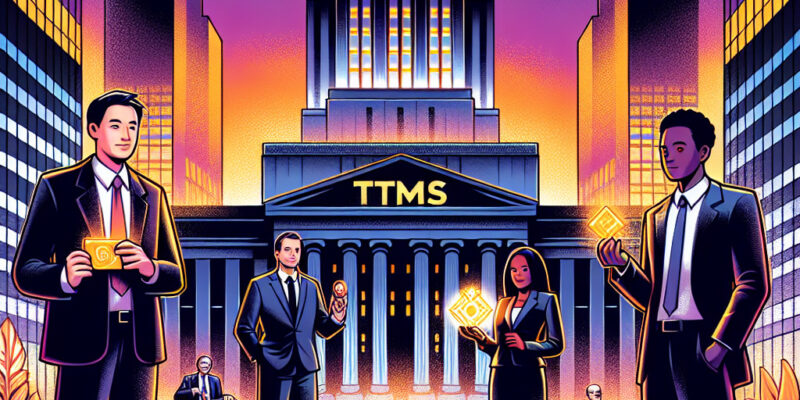Trump Launches Major Probe into Crypto, Political Debanking Claims

In a recent development that could have sweeping implications for the financial landscape, the U.S. government might be investigating the banking sector’s relationship with cryptocurrencies and its alleged biases. The Wall Street Journal suggests that there might be forthcoming executive measures aimed at probing the intricate dynamics between banks, cryptocurrency executives, and conservative figures who claim to have been unfairly debanked.
At the heart of this initiative lies a combination of finance and politics, two arenas that are increasingly intermingled in today’s world. It’s a topic that provokes intense debate, not least because of its implications on financial freedom and equality. The potential executive order, if indeed issued, seeks to address accusations that certain individuals and entities, particularly those involved in the crypto industry or holding conservative views, have faced undue obstacles in accessing traditional banking services.
The relationship between banks and the burgeoning cryptocurrency sector is complex. While digital currencies have rapidly gained popularity, they often challenge the traditional banking model, causing friction. Banks, by their nature, are risk-averse, and the volatility associated with digital assets adds to the cautious approach institutions take concerning crypto-related businesses. As a result, many in the cryptocurrency realm feel marginalized, citing instances where banks have either denied them services or closed their accounts abruptly—hence the term ‘debanking.’
Moreover, the issue seems to transcend financial transactions, dipping into the realm of political affiliations. Some conservatives argue that their political ideologies have made them targets within the financial system, particularly when those views clash with those of the prevailing financial orthodoxy. Such assertions, if proven, could fuel further political polarization and erode trust in the supposedly impartial nature of financial institutions.
Yet, the notion of fair access to banking services isn’t just a political or financial problem; it’s a societal one. The idea that certain groups might face discrimination based on their business practices or political beliefs challenges core democratic values. In a society that prides itself on equal opportunity, the integrity of financial systems is paramount.
If the proposed investigation materializes, it may lead to increased transparency about the criteria that banks use to serve their clients. Such scrutiny might either validate the concerns of those who claim to be unjustly debanked or, on the contrary, reveal a more nuanced reality. This move could potentially stimulate reforms within the banking sector, promoting policies that ensure fair treatment for all clients, irrespective of their industry or political stance.
Intriguingly, this development comes at a time when the cryptocurrency market stands at a crossroads. With blockchain technology gaining traction and decentralized finance (DeFi) platforms challenging traditional financial systems, the way banks adapt—or resist—could shape the future of financial services. For many in the crypto community, a sense of liberation accompanies decentralization, as it promises financial sovereignty free from the perceived biases of conventional banks.
The anticipation of an executive order signals a significant moment, inviting us to reflect on where we stand as a society. If thoughtfully approached, this investigation might not only address immediate claims of debanking but also prompt a broader dialogue about fairness and innovation in finance. It remains to be seen how these discussions will unfold and whether they will spur constructive changes that empower individuals and businesses alike.
As the narrative of this potential probe develops, we find ourselves at a fascinating juncture: one that challenges us to balance the principles of innovation, regulation, and equality in an ever-evolving financial ecosystem. Let’s watch closely as this story unfolds, considering how each of these elements might redefine the banking industry’s role in a modern, digitized world.













